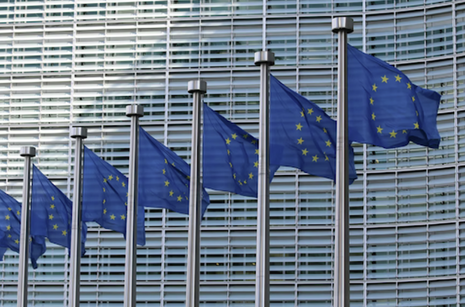Brexit funding losses damaging the university, say researchers
Senior pro-vice-chancellor Andy Neely has said the University’s lost association with an EU science research programme is having negative impacts

Recovering post-Brexit funding losses from Horizon, an EU research programme worth €95bn, has been described as a “top priority” by senior pro-vice-chancellor Professor Andy Neely.
Negotiations over post-Brexit restructuring of research relations are ongoing. However, whilst the European Commission has made an offer under which the UK could re-enter Horizon without paying for 2021 and 2022, the UK government has claimed that costs are preventing an agreement. In case Horizon negotiations fall through, a plan-B research scheme called Pioneer has been established.
In an interview with the BBC, Neely spoke of the importance of Cambridge maintaining ties with Horizon, stating: “If you really want international collaboration you want to remove the barriers to that and make this as easy as possible.”
Pro-vice-chancellor for research, Professor Ferguson-Smith, told Varsity that “Horizon funding has allowed researchers in Cambridge to deliver life-changing impact” in fields as wide ranging as cancer research, vaccinations and carbon zero flight.
Ferguson-Smith went on to say that “the benefits of association are far greater than the initial sums of money involved. To be part of Horizon Europe means UK researchers are influencing conversations, partnerships and the formation of consortia that bring together international, multidisciplinary talent in ways that cannot be achieved by one country alone.”
Varsity also spoke to Professor Mario Caccamo, CEO of a Cambridge-based crop-science organisation, about the impacts of lost research funding.
For Professor Caccamo, there has been a “deterioration” in relations with important European collaborators since Brexit. Discussing the government’s plan-B ‘Pioneer’ programme, Caccamo said that whilst he was glad a back up plan existed, it is “second best” to Horizon.
The impacts of Brexit have already been felt at Cambridge. Last term, an investigation by Varsity revealed EU undergrad enrolments to have fallen by a fifth in the first post-Brexit year.
For Professor Caccamo, the UK’s reputation as a global centre for science research and higher education has been damaged, as the absence of Horizon has “absolutely” impacted the university’s attractiveness. Caccamo went on to say that international students, particularly those doing PHDs, have been deterred from coming to Cambridge as a result.
When contacted by Varsity, the university offered further remarks from Professor Ferguson-Smith, in which the pro-vice-chancellor said: “Horizon Europe is respected across the world. It funds projects that push the boundaries of scientific endeavour giving rise to ground-breaking, collaborative research and innovation.”
“The combination of scale with the international nature of collaboration – drawing upon the combined research talents at all career stages from across one of the world’s largest scientific communities – is something that national research funders simply cannot match,” Ferguson Smith concluded.
 News / Colleges charge different rents for the same Castle Street accommodation2 March 2026
News / Colleges charge different rents for the same Castle Street accommodation2 March 2026 News / News in Brief: waterworks, wine woes, and workplace wins 1 March 2026
News / News in Brief: waterworks, wine woes, and workplace wins 1 March 2026 News / Climate activists protest for ‘ethical careers policy’1 March 2026
News / Climate activists protest for ‘ethical careers policy’1 March 2026 News / Angela Merkel among Cambridge honorary degree nominees27 February 2026
News / Angela Merkel among Cambridge honorary degree nominees27 February 2026 News / Private school teacher who lied about Cambridge degree barred from teaching27 February 2026
News / Private school teacher who lied about Cambridge degree barred from teaching27 February 2026









